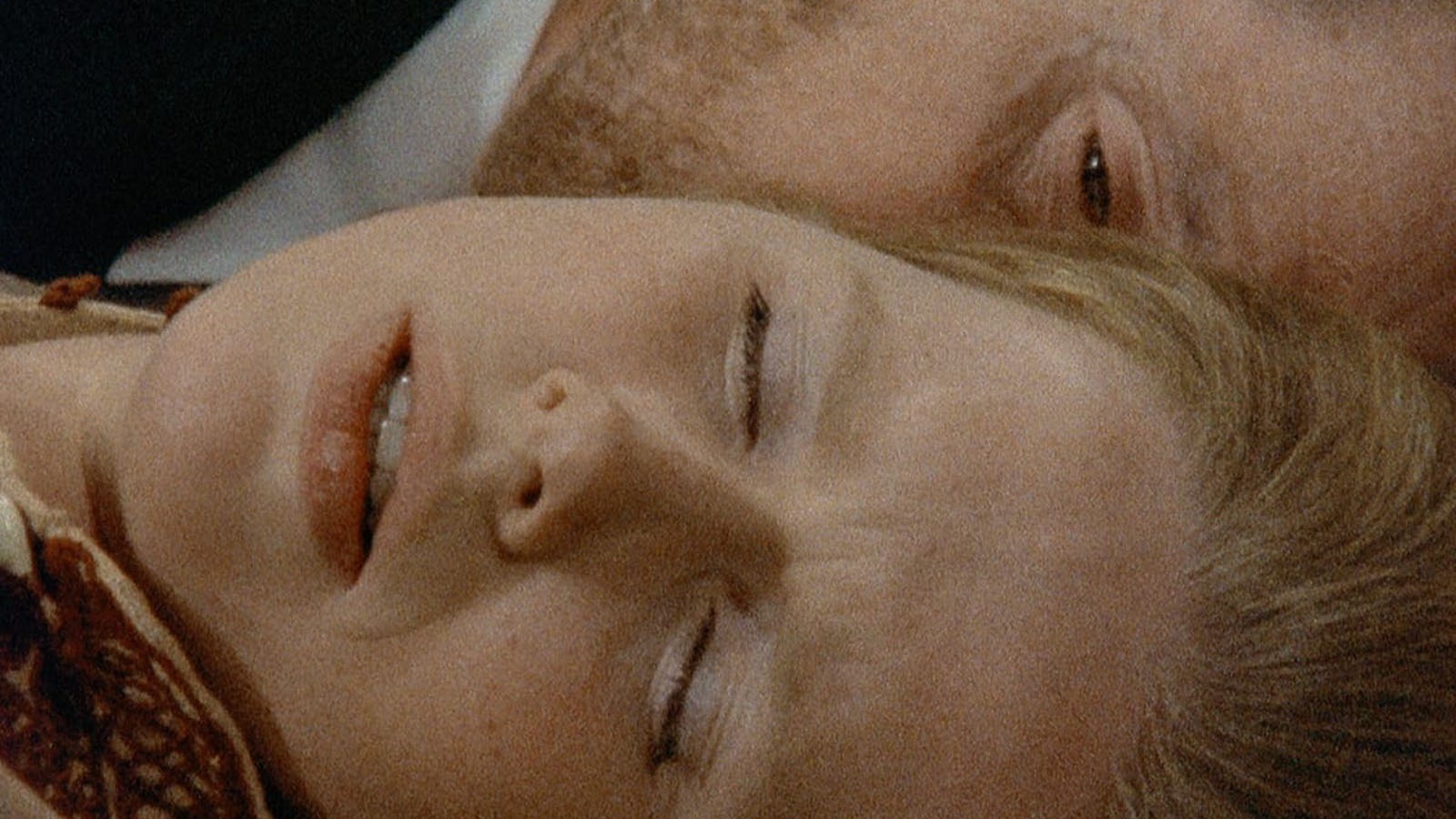Scenes from a Week in September

With a little perspective and a bit of guidance from Nicolas Rapold in Artforum and Giovanni Marchini Camia in Film Comment, Venice’s solid 2021 edition seems even better if we look beyond the main competition. By comparison, Toronto, which wraps this weekend, has had a relatively quiet year. The Wavelengths program, though, according to Michael Sicinski in the Notebook and Jordan Cronk at Hyperallergic, is one of the strongest in some time. The fall festival season chugs on with San Sebastián opening today and New York gearing up for next week’s world premiere of Joel Coen’s The Tragedy of Macbeth.
- Several years ago, Ingmar Bergman’s youngest son, Daniel, approached Hagai Levi, the showrunner behind In Treatment and The Affair, with the idea of remaking Scenes from a Marriage, the 1973 Swedish television series in which Erland Josephson’s Johan leaves Liv Ullmann’s Marianne. In Levi’s version, currently running on Sundays on HBO, it’s Jessica Chastain’s Mira who walks out on Oscar Isaac’s Jonathan. As Leo Goldsmith writes at 4Columns, “the spectacle of watching two very hot A-listers gnash their teeth, grovel, hate fuck, and mentally and physically flagellate each other is what we are here for, and in this the series accommodates.” Vulture’s Rachel Handler has brought Ullmann and Chastain together for a conversation about Ibsen, sex scenes, and much more. “To me,” says Ullmann, “it’s very clear that it’s a man looking and writing and directing this [new] version” of Scenes. “Whereas with Ingmar, it was a man that always looks as a woman at whoever he works with. That’s why we worked together so much. I always thought he wanted me to be him. But that wasn’t it. He wanted the woman in him to come through me.”
- Ernst Lubitsch depicted an altogether different sort of marriage in his 1941 screwball comedy That Uncertain Feeling. Jill (Merle Oberon), happily married to Larry (Melvyn Douglas) for six years, is hit with a bout of incessant hiccups and seeks help from a psychoanalyst, Dr. Vengard (Alan Mowbray). The New Yorker’s Richard Brody writes that “within the sparely decorated sets Lubitsch pulls off exquisitely timed and wickedly allusive maneuvers of desire and power. This is all the more impressive given the film’s sense of relaxation, its warm and humane rounding of the hard lines of his precise mechanisms—not least by way of the actors’ lively expressivity, which is perched lightly on the sharp edge of anger, pain, and conflict.” In the wake of Trouble in Paradise (1932), Ninotchka (1939), and The Shop Around the Corner (1940), Lubitsch “pared down and melted away much of his cinematic superstructure to reveal the mechanisms of his method and its underlying erotic ideas with an extraordinary, self-revealing clarity.”
- In the new Film Quarterly, Yasmina Price analyses two films by Garrett Bradley. “Resisting strict genre classification, America [2019] and Time [2020] both mix experimental and documentary strategies to build dazzling displays of Bradley’s particular film grammar,” writes Price. “Her accumulative strategy of generating counternarratives to oppose cinematic and state structures by foregrounding an expansive sense of Blackness is a filmic approach that hums with playfulness and tenderness. Bradley stages an encounter between her own images and archival fragments . . . to create a filmic quilting that finds kinship with the quilting practices of African American women that map onto the New Orleans geography of both films.”
- For the Quietus, Greg Hyde talks with Olivier Assayas about working closely with Sonic Youth on Demonlover (2002) and developing an “organic cooperation between scoring the film and making the film”; about Wasp Network (2019) as “a postscript to Carlos [2010]”; and about Personal Shopper (2016) as “an unsettling movie that had to do with the porous border between what is real and what is not . . . I also had this notion that a lot of the horror movies I love are American and made by American filmmakers. America has this Manichean belief that what is visible is good and what is not visible is evil, that there is something very destructive, very negative lurking in the obscurity. It’s not something I share. I’m the opposite of that.”
- The new Animus features editor Elena Lazic’s conversation with Ira Sachs about Frankie (2019), Christina Newland’s reflections on Venice 2021, Joseph Bullock on Vincente Minnelli’s Home from the Hill (1960), Fedor Tot on Lordan Zafranović’s Occupation in 26 Pictures (1978), and Robert Stinner on two films by Todd Haynes. In Superstar: The Karen Carpenter Story (1988), “pop music begins to seem like a tool of mass indoctrination that slowly kills its figureheads,” while Velvet Goldmine (1998) “eyes the celebrity cult of pop music with suspicion, and its fans with care and grace.”



